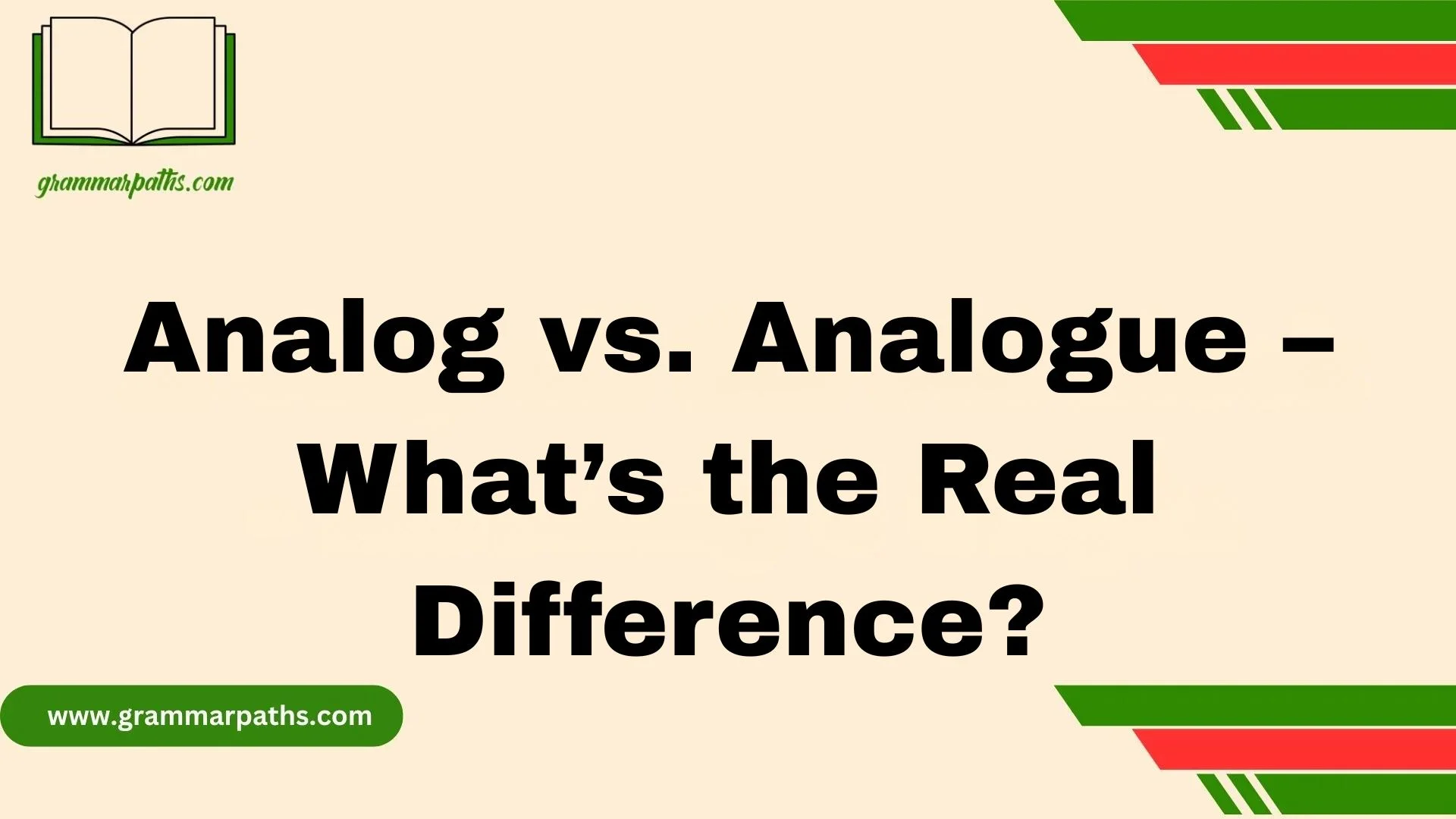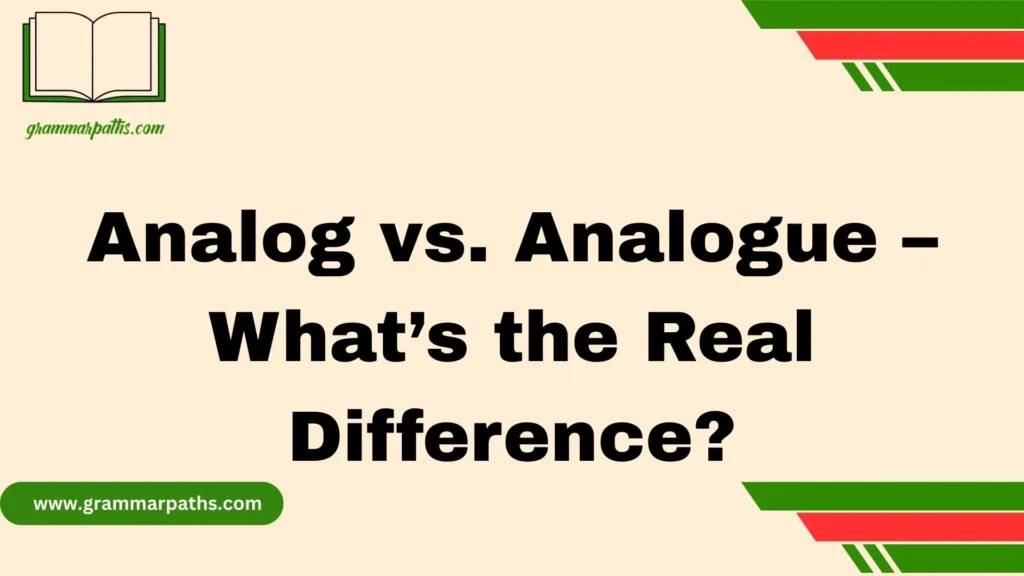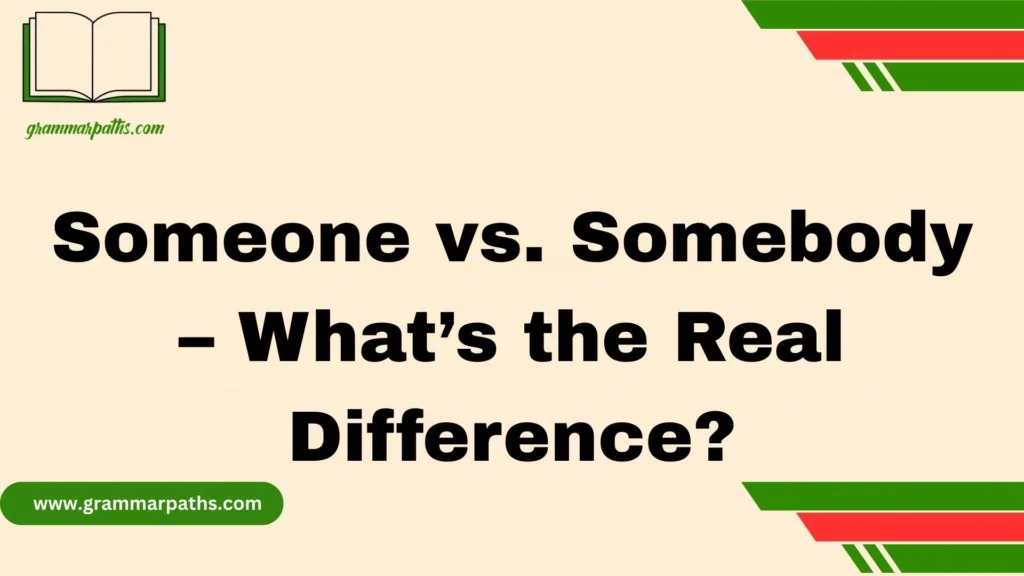When people ask me about Analog vs. Analogue – What’s the Difference, I always refer to how old machines like a watch actually describe time.
These devices show the state of time in a very analogous way, using a real-world representation—the position of needles mimicking the sun in the sky. I used to interpret this naturally as a child, not realizing the correspondence between design and nature.
The mechanism inside these watches gives an indication of passing time through measurement and physical movement. Their display is more than just numbers—it’s a reflection of time’s observable, temporal, and contextual reality. This beautiful blend of design and function is timeless technology.
The Root Word: Where Did They Come From?
Both analog and analogue trace back to the Greek word “analogos,” which means proportional or according to ratio. Over time, this concept entered Latin and eventually made its way into modern English in both scientific and literary circles.
- In Greek: ἀνάλογος = proportionate
- In Latin: analogus = analogous
- In English: analog/analogue = similarity or non-digital format
Originally, the word was used to describe things that were comparable or analogous, especially in philosophical or logical contexts. Only later did it branch into electronics, where it began to describe non-digital systems.
US vs UK English: The Core Spelling Divide
The main difference is regional—not functional.
| Region | Preferred Spelling | Notes |
| United States | Analog | Used in all contexts, especially technology and science |
| United Kingdom | Analogue | Used in both tech and literary contexts |
| Canada | Analogue (mostly) | Tech industry increasingly adopts analog |
| Australia | Analogue | Still follows British usage, but analog is gaining traction in tech |
The spelling divergence came about during the 19th century, largely due to Noah Webster’s push for simplified American spellings. Just like color vs colour or theater vs theatre, analog was adopted in the U.S. for simplicity, while the U.K. kept analogue.
Is There a Difference in Meaning? Actually, Sometimes.
Generally speaking, analog and analogue mean the same thing: something that’s comparable or non-digital.
But there are subtle usage preferences based on context and region:
- In American English, analog is used for all meanings—tech or otherwise.
- In British English, analogue is used for:
- Analog technology (analogue clocks, analogue signals)
- Literary comparisons (an analogue to a historical figure)
In short:
- In tech? Use analog.
- In literature or comparisons? Brits often choose analogue.
- In America? Always go with analog.
Analog vs. Analogue in Technology
In the world of electronics, audio, and engineering, the word analog has become the global standard—even in countries where analogue is the more traditional spelling.
Common uses of “Analog” in Tech:
- Analog signal: A continuous signal that represents physical measurements.
- Analog device: A gadget that works with real-world input like temperature or sound.
- Analog clock: One with hands that move in a circle, not a digital display.
Analog vs. Digital – What’s the Difference?
| Feature | Analog | Digital |
| Data Type | Continuous | Discrete (0s and 1s) |
| Example | Vinyl record | MP3 file |
| Precision | Limited by physical medium | High precision |
| Common Devices | Thermometer, clock, amplifier | Smartphone, digital watch, computer |
👉 Note: Even in the UK tech world, engineers usually prefer analog because it’s the accepted spelling in global technical standards (IEEE, ISO, etc.).
Analog vs. Analogue in Language and Literature
Here’s where analogue gets a bit more spotlight—outside of tech.
In British English, analogue is often used in more abstract or literary contexts, especially to describe something that serves as a counterpart or equivalent.
Example sentences:
- “The character is an analogue of Odysseus in modern literature.”
- “That theory is an analogue to the one proposed in the 18th century.”
In American English, these same sentences would more likely use analog—though usage is rare outside of tech.
Style Guide Standards and Regional Preferences
Writing for a publication or academic audience? You’ll want to stick to the rules of the style guide being used.
| Style Guide / Source | Preferred Spelling |
| APA (American Psychological Association) | Analog |
| MLA (Modern Language Association) | Analog |
| Chicago Manual of Style | Analog |
| Oxford Style Manual | Analogue |
| Cambridge Style Guide | Analogue |
| IEEE (Institute of Electrical and Electronics Engineers) | Analog (always) |
If you’re publishing content for international tech audiences, analog is the safe, standard choice.
Comparative Table: Analog vs. Analogue by Region and Context
| Context | United States | United Kingdom | Canada | Australia |
| Engineering | Analog | Analogue | Analog | Analog |
| Literature | Analog | Analogue | Analogue | Analogue |
| Journalism | Analog | Analogue | Mixed | Mixed |
| Education (K–12) | Analog | Analogue | Analogue | Analogue |
| University Science Texts | Analog | Analog | Analog | Analog |
Real-World Examples: How It’s Used in Industry
Here are a few real-world examples that show the usage of analog and analogue in different sectors.
Engineering/Technology
Company: Texas Instruments
Use: “Analog signal processing is at the heart of our amplifier design.”
Publishing
Book Title: “Analogue Science Fiction and Fact” (US Magazine, still uses the old British spelling)
Note: A rare exception where a U.S. publication uses analogue for stylistic or branding purposes.
Marketing
Campaign Slogan: “From Analogue to Digital—Our Journey” (used in UK ad campaigns highlighting tech transformation)
Tips to Remember the Difference
Need help remembering which is which? Try these mnemonics and visuals.
💡 Easy Mnemonics
- “Log into the U.S. = Analog”
- “-ue = UK usage” → Analogue
✅ Quick Reference Cheat Sheet
| You’re Writing For… | Use This Spelling |
| A U.S. audience | Analog |
| A British/Commonwealth audience | Analogue |
| A technical/manual context | Analog (always) |
| A literary essay in the UK | Analogue |
Should You Switch Your Spelling? It Depends.
There’s no hard-and-fast rule for every scenario, but here are some guidelines to keep your writing sharp and consistent.
Use Analog if:
- You’re in the U.S. or writing for Americans.
- You’re creating technical documentation, regardless of country.
- You’re following APA, MLA, or IEEE standards.
Use Analogue if:
- You’re in the UK, Australia, or Canada.
- You’re writing a non-technical piece, especially in literature or journalism.
- You’re following British or Oxford English spelling rules.
Consistency matters more than correctness here. Pick a spelling and stick to it throughout your document.
Conclusion
Understanding the difference between analog and analogue isn’t just about spelling—it’s about geography, usage, and context. While analog is preferred in American English, analogue appears more often in British English. Whether you’re reading a manual, talking about a watch, or writing for an international audience, knowing which version to use helps maintain clarity and professionalism. And with technology evolving rapidly, it’s helpful to recognize when the term itself is being used in a literal or figurative way.
Frequently Asked Questions (FAQs)
Is “analog” American and “analogue” British?
Yes. Analog is the preferred spelling in American English, while analogue is used in British English.
Is there any difference in meaning between analog and analogue?
No real difference in meaning—only in spelling and regional usage. Both refer to similar concepts, especially in technology or comparisons.
When should I use “analogue” in a sentence?
Use analogue when writing for a British audience or when following British English standards (e.g., “The vinyl record is an analogue format.”).
Why is analog used in technology terms?
Because it’s shorter and aligns with American tech industry standards. Terms like analog signal or analog device are widely accepted globally.
Can I use both spellings in one document?
It’s best to stay consistent. Choose one spelling based on your target audience and stick with it throughout the piece.

Emma Brooke is a passionate language expert and contributor at GrammarPaths.com, where she helps learners navigate the complexities of English grammar, idioms, and effective writing. With a strong academic background and years of teaching experience, Emma excels at turning tricky grammar rules into simple, practical lessons that readers can easily grasp.












